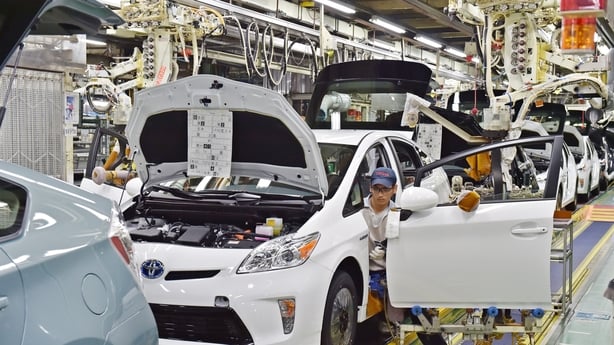Factory activity in Asia failed to speed up in May as the region's export-driven businesses struggled for new orders in a slow global economy, surveys released today showed.
Output in China, the world's second largest economy, barely improved from a month earlier, while Japan, the third largest, contracted as production was still recovering from earthquakes that struck in April.
Though it was the third month of improvement in a row, China's official Purchasing Managers' Index (PMI) was only fractionally above positive at 50.1 in May.
The survey also revealed new orders slowed and export orders stalled.
The private Caixin/Markit Manufacturing Purchasing Managers' index, focusing on smaller companies, made even sorrier reading for global firms reliant on China's giant market for everything from consumer items, to cars and commodities.
It showed conditions deteriorated for a 15th consectutive month.
China posted economic growth of 6.7% in the first quarter - its slowest since 2009 - and there are nagging doubts about the authorities' ability to engineer a turnaround without fuelling debt.
Whereas speculation has hardened in recent weeks that the US Federal Reserve will raise interest rates at a policy meeting on June 14-15, some Fed policymakers have said they remain concerned about uncertainties in China and a possible British exit from the European Union in a vote later this month.
Meanwhile in Japan, factories grappling to recover from the earthquakes in the southern manufacturing hub of Kumamoto were also knocked by a sharp contraction in external demand.

That showed up in the Markit/Nikkei Japan PMI, which fell to 47.7 in May on a seasonally adjusted basis - the fastest contraction in three years - from 48.2 in April.
The yen's recovery to an 18-month high against the dollar last month has also clouded the outlook for Japan's exporters.
The fragility of domestic demand has also forced Prime Minister Shinzo Abe to announce a delay to a planned sales tax increase.
Elsewhere in Asia, conditions were patchy at best.
South Korea's manufacturing activity improved slightly in May, with the Nikkei/Markit PMI at 50.1 from 50 in April, with new export orders up a little.
More alarmingly, separate data showed South Korea's exports unexpectedly fell 6% last month with shipments to China, its biggest customer, contracting 9.1%.
In Taiwan, manufacturing activity deteriorated for the second month in a row with new orders falling at their fastest pace in three months.
Malaysia's manufacturing activity remained in contraction, with new orders down for a 15th straight month.
Analysts say weak global demand will continue to pressure corporate earnings and overall economic activity in the region.
But Australia was faring better, with data released earlier in the day showing the economy accelerating at its fastest annual pace in three years in the first quarter.

